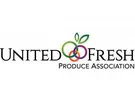Yesterday, Congresswoman Rosa DeLauro (D-CT) introduced the Fresh Produce Procurement Reform Act – legislation that will give USDA the tools it needs to fully utilize the fresh produce supply chain to get fruits and vegetables to those in need.
“We know demand is high for fresh fruits and vegetables at emergency feeding sites around the country. Yet, USDA’s procurement infrastructure is not built to purchase and distribute a wide variety of fresh fruits and vegetables. We thank Representative DeLauro for recognizing the extraordinary opportunity to address nutrition insecurity by tapping the existing fresh produce supply chain to meet these community needs,” said Tom Stenzel, President & CEO of United Fresh.
The legislation announced yesterday establishes a new mechanism for USDA to purchase a wide variety of U.S.-grown fresh fruits and vegetables for distribution to those in need and expands the pool of public and nonprofit community partners that will have access to healthy fresh fruits and vegetables for distribution to the populations they serve.
Late last year, United Fresh convened a working group of growers, distributors, and nonprofit partners to embark on a months-long project of providing recommendations on how to reform purchasing practices to be more inclusive of fresh produce and stakeholders that have long been left out of procurement and distribution opportunities.
Until 2020, USDA typically only purchased three different fresh produce commodities, in relatively nominal amounts, for distribution through the emergency feeding network.
“There is no reason individuals who rely on the emergency food system to help make ends meet should not have access to a wide variety of fresh fruits and vegetables grown by U.S. farmers when we have the tools to make it happen,” added Stenzel. “This is a monumental step in the right direction in addressing nutrition insecurity and access for the nine out of 10 Americans who struggle to meet Dietary Guidelines’ fruit and vegetable recommendations.”
The Fresh Produce Procurement Reform Act would direct USDA to partner with existing growers, distributors, and food hubs to purchase, pack and deliver fresh fruits and vegetables to local food banks, schools, youth-serving organizations, tribal governments, and other nonprofit community members serving nutrition insecure populations. Recipients would have access to a wide variety of U.S.-grown fresh fruits and vegetables guided by Dietary Guidelines for Americans recommendations, featuring local produce when seasonally and geographically available. USDA would consider values other than lowest-cost bids in awarding contracts, providing opportunities for a wider variety of high-quality produce sourced, packed, and distributed from growers and distributors of all sizes, including veteran, women-owned, and socially disadvantaged members of the agriculture community.
The legislation is endorsed by the American Heart Association, Boys and Girls Clubs of America, National Sustainable Agriculture Coalition, Save the Children, and more. To sign on your organization, click here.
 For more information:
For more information:
Ben Massoud
United Fresh
Tel: +1 (202) 303-3404
bmassoud@unitedfresh.org
www.unitedfresh.org
